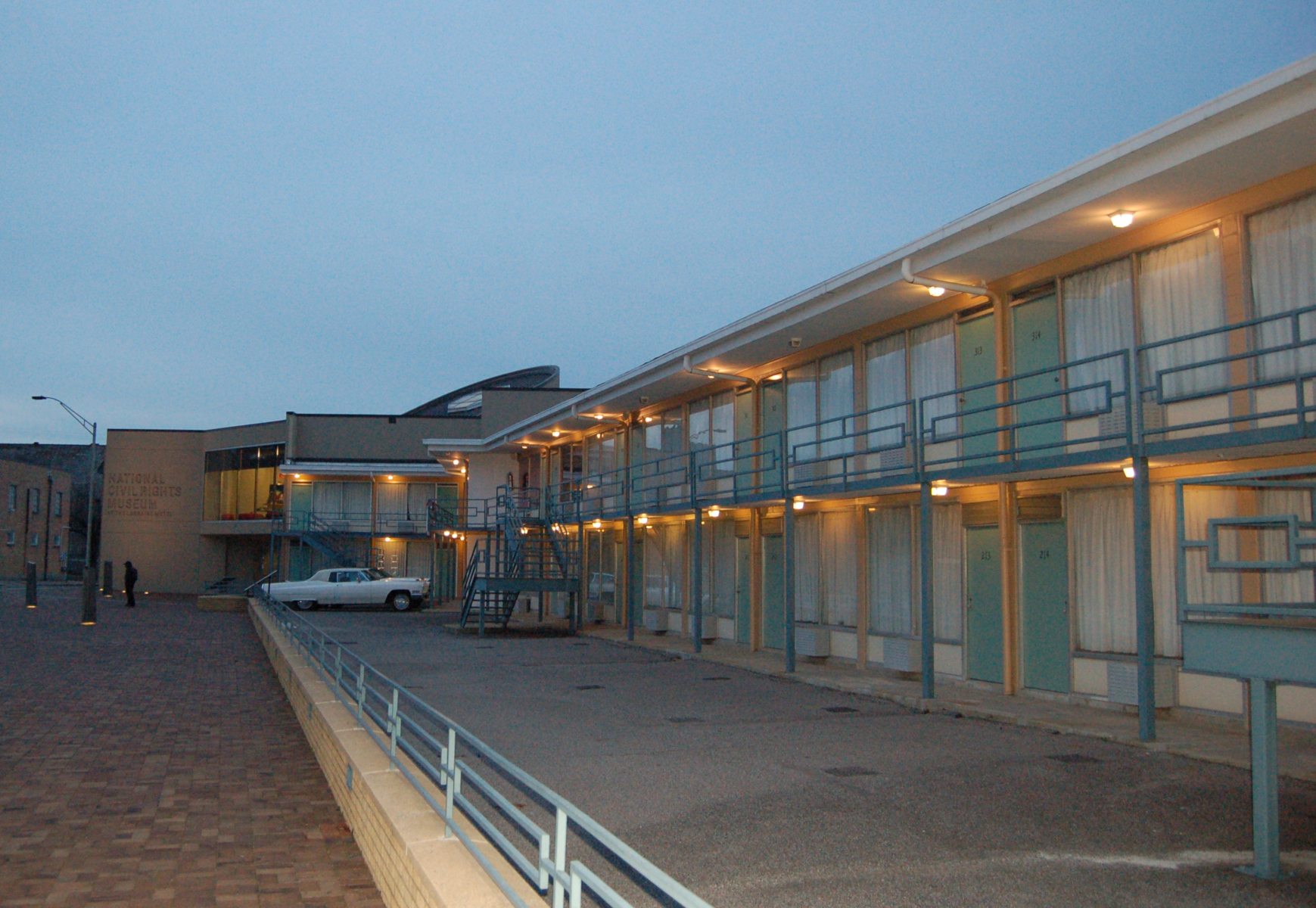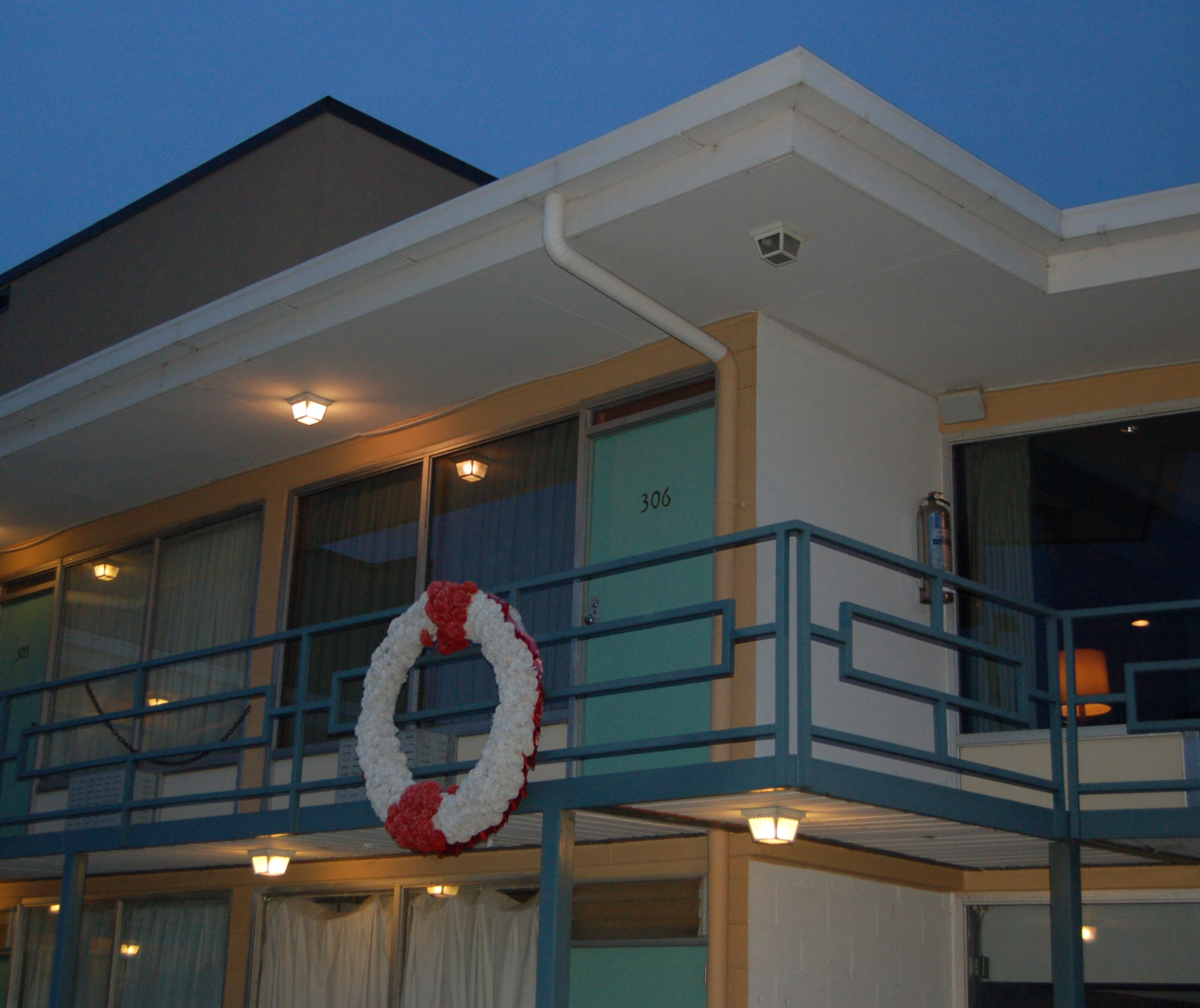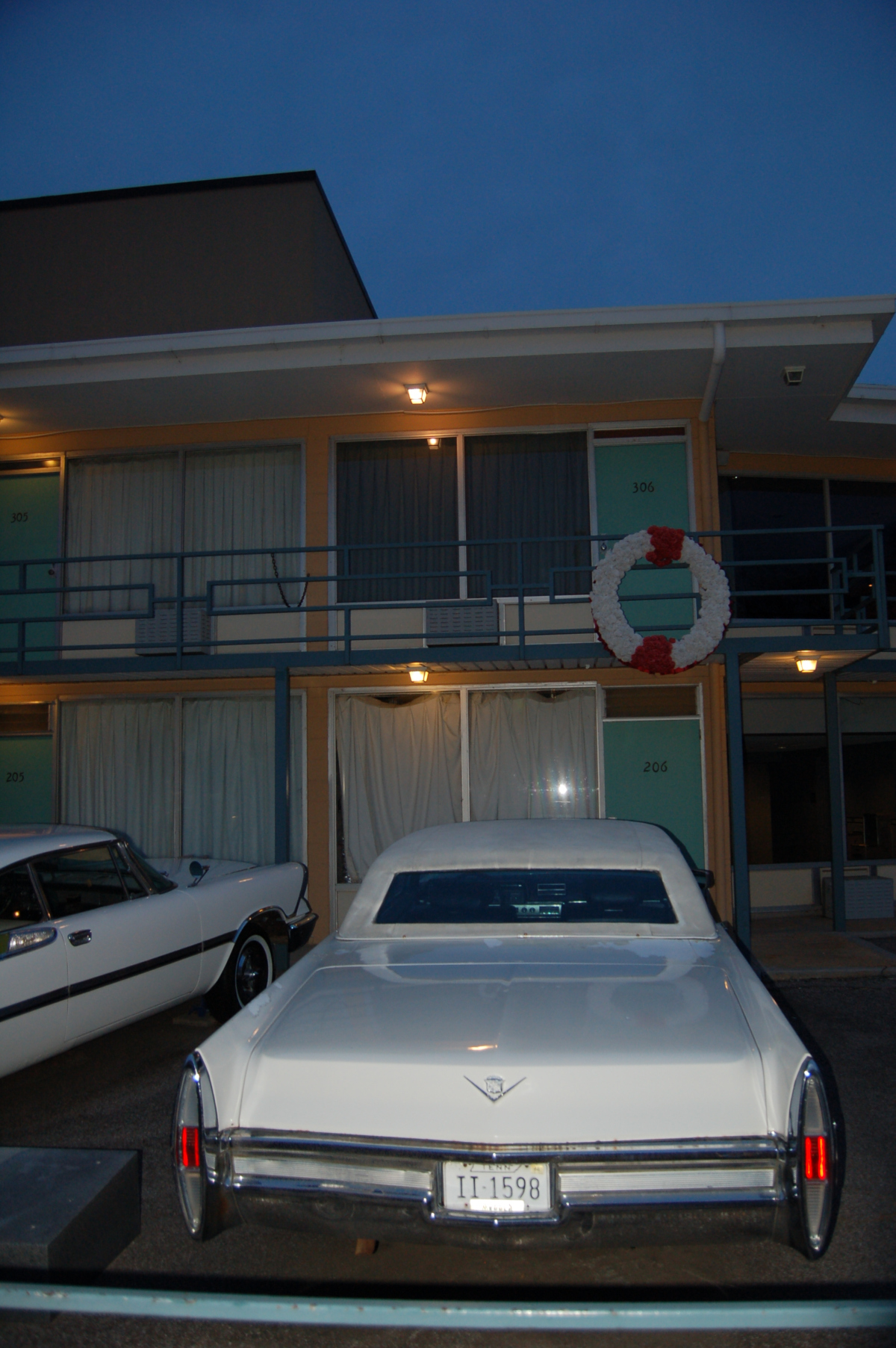In the United States, tomorrow will be a national holiday for the birthday(-ish) of prominent civil rights leader Dr. Martin Luther King, Jr., born in Atlanta, Georgia, in 1929. Thirty-nine years later, Dr. King was assassinated on the balcony of the Lorraine Motel in Memphis, Tennessee, when he was in the city for a sanitation workers’ strike.
More than fifty years after King’s death, the Lorraine Motel still exists – sort of. The building, no longer a functioning motel, has been incorporated into the National Civil Rights Museum, which opened in 1991 and reopened after a $27-million renovation in 2014. The district around the motel was struggling economically in 1968 when King has shot, but since then it has been aggressively gentrified. (When I visited the neighborhood in late 2014, there was even an American Apparel store a couple of blocks from the former hotel, although it appears to have since closed, along with the struggling brand’s other brick-and-mortar stores.)
Like the surrounding neighborhood, the motel is also gentrified. The balcony where King was shot has been preserved, but it is an island of a heritage structure surrounded by a new pedestrian walkway, a parking lot, and new museum buildings. Visiting the motel shortly after the $27-million renovation, I could hardly imagine what the place looked like in 1968.
The over-preservation of the Lorraine Motel gives a false impression of what the place was like when King was shot there. Its gentrification elides the very real economic problems the neighborhood was facing in 1968. It is as if the building has been pickled and sealed in a glass jar, without any of its context.
There is a certain sad irony that this has happened to the place where Martin Luther King, Jr. was shot while in the midst of organizing the Poor People’s Campaign, which was to include a march on Washington by the nation’s poor. This irony was not lost on the last resident of the Lorraine Motel, Jacqueline Smith, who was evicted in 1988 before the building was converted into a museum. Since then, she has protested the museum from across the street. “Gentrification is a violation of civil rights,” one of her signs said in 2014. Don’t spend $27 million on the museum renovation and $0 for the poor, another sign said; “Use the money as Dr. King would have wanted.”








Leave a Reply